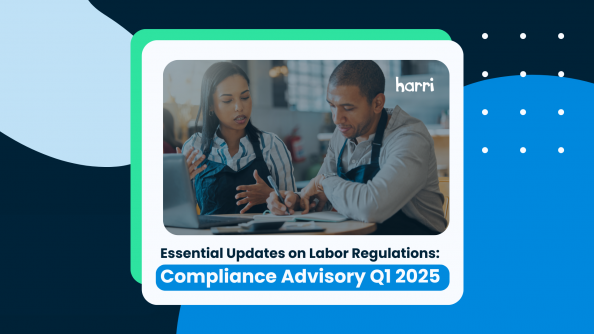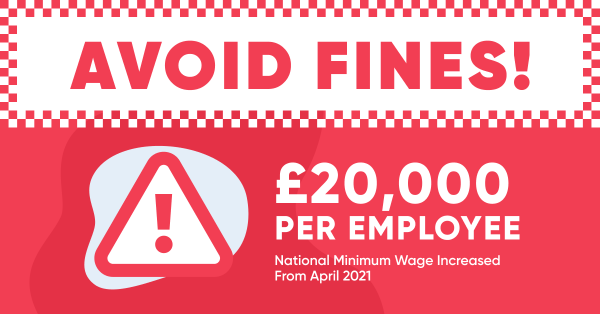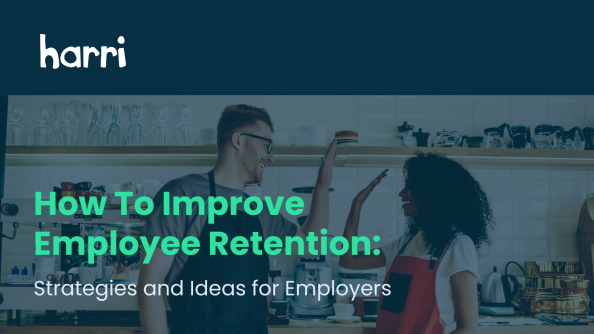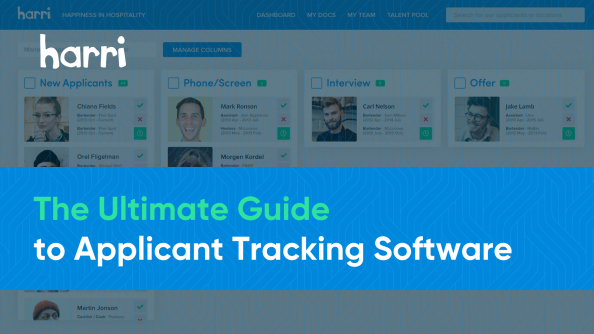Could Foreign Workers be the Saviour of Summer Trading?

- By Harri Insider Team | May 20, 2022
The busy summer season is fast approaching and operators who still have unfilled roles are going to struggle to cope. However, there is an option that might help ease the pain (a bit): employing staff from overseas through the government’s Skilled Worker visa scheme. Here we explore the ins and outs of the scheme, and the ways in which Harri can help smooth the process of employing from abroad…
Get your licence while you can
Brexit didn’t quite mean the end of the road for hospitality businesses wanting to employ EU workers: it can still be done, but only for specific roles and at certain salary levels. The first step to recruiting from abroad – not just from the EU but globally – is to apply to the Home Office for a sponsor licence, which will enable you to employ migrants as long as the job role is classed as an “eligible occupation”.
The licence lasts for four years and costs £536-£1476 depending on the size of your business.
Licence applications usually take up to eight weeks to process – so you’d better get your skates on if you want foreign workers to ease the burden this summer. Yash Dubal, director at AY&J Solicitors, told Big Hospitality: “It is the first summer since the pandemic without any restrictions and clients we’ve spoken to in the hospitality sector say they expect a busy year but are worried about acute staff shortages.
“We would advise anyone who hasn’t already applied to the Home Office to get a licence to sponsor overseas workers to do so urgently as it takes around eight weeks for licences to be processed. This will then allow them the option to recruit overseas.”
Before you apply for your licence you’ll need to appoint someone within your business to manage the sponsorship process using the government’s online Sponsorship Management System. UK Visas and Immigration will carry out checks on you and your staff to make sure no one involved in the sponsorship application and management has any kind of criminal background.
Only “skilled workers” can come
Of course, it’s not just about you having a licence to employ foreign workers: anyone from abroad who wants to take a job in your business will need to have a Skilled Worker visa. Once you’ve had your sponsor licence approved, you can issue Certificates of Sponsorship (CoS) to each of the foreign workers you’d like to employ. Once they have their CoS (which costs employers £199) they must use it to apply for their Skilled Worker visa within three months.
Although salary and skill thresholds have been lowered for migrants under the new Skilled Worker visa scheme, there are still lots of job roles that aren’t covered – namely the ones that businesses are crying out for most of all, especially to help them through the summer season. So, in other words, you won’t be able to employ people from abroad to fill roles such as cleaning and housekeeping, kitchen assistants and kitchen porters, waiters and bartenders.
As for those jobs that are covered by the Skilled Worker visa, you can safely recruit from abroad if you’re looking for chefs, hotel managers, pub and bar managers, operations managers or HR managers. Employers need to pay at least the “going rate” annual salary for these roles, for example, £21,800 for a hotel manager, £36,400 for an HR manager, £18,900 for a chef and £18,400 for a catering/bar manager. As a sponsor of a foreign worker, you’ll need to keep records of promotions and pay increases, track and record attendance, and keep contact details up-to-date.
There are other costs involved too, including the Immigration Skills Charge – £364 for smaller employers for the first year, and £182 every six months thereafter, rising to £1,000 and £500 every six months for larger employers.
Harri is here to help
Employing overseas workers clearly isn’t a simple process, so you’ll need all the help you can get on the tech front, including solid talent acquisition and HR systems. Harri enables you to create job advert templates that clearly state the criteria you’re looking for when hiring global talent. Hopefully, this will deter unsuitable candidates from applying in the first place, and then our screening questions should help you sort the good from the bad; you can set up specific questions relating to location, skills, and relevant Right to Work (RTW) suitability before you invest time interviewing.
As for RTW, by law you must check that any person you wish to employ has permission to enter or stay in the UK and can do the work in question before they start working for you. If you fail to carry out a RTW check, you may be liable for a civil penalty under illegal working legislation and you could have your licence revoked. Thankfully, Harri has a solution for this too through our Right to Work integration with TrustID: simply upload a scan of a passport and within half an hour you’ll know whether that person has the right to work in the UK or not, giving you complete peace of mind.




















